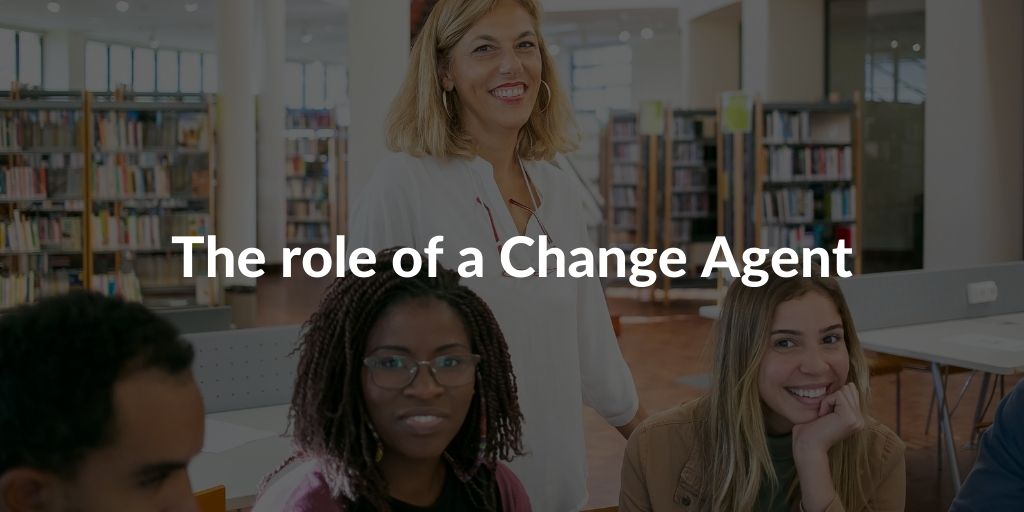Who is a Change Agent?

Change agents can be managers or employees, or external consultants hired to facilitate change initiatives.
Of course, internal change agents have the advantage of being familiar with an organisation’s history, operations, and people, while external change agents can provide a fresh perspective without the influence of a firm’s traditions and culture.
→ Behavioural change: what is it and why is it important?
Read our post on How to plan an Agile Change initiative to know more!
What are the types of change agent?
When an organisation wants to make a change happens there are 2 perspectives it should be interested in:
- everybody who has a role in running the business,
- everybody who is in a project or change management role.
Everybody who has a role in running the business
All the people who are providing the services and the products that ultimately the customer buy from the organisation. In the first group, we have all the staff impacted by the change, whose priorities are using the existing ways of working to satisfy current customer demand and getting the job done.
On top of that, when a change occurs, they need to change how they work. Plus, they need to mobilize their colleagues and themselves to participate in the change and, finally, integrate the change into current ways of working.
That is exactly the definition of a change agent: somebody having a job in an organisation and next to that job he/she facilitates change. This means a Change Agent can have a role in HR, Finance, Marketing, Sales, Operations, Administration etc.
Everybody who is in a project or change management role
Their role is about changing the business.
In the second group, we have project and change teams, whose priorities are introducing new ideas, innovation and new ways of working, identifying activities and tasks and creating plans to implement change.
Plus, they can guide those who are selected as “change agents” to perform their roles.
The change agent network is becoming incredibly popular within organisations.
People may not be called change agents but the point is that, on top of their daily job, they have the role to help make change happen and integrate changes into the current ways of working.
What does a change agent do?
- Flexibility (and of course being open to change!).
- Effective Listening Skills.
- Influence and negotiation.
- Analytical skills.
- Relationship management.
- Strategic thinking.
- Relationship Orientation.
- Able to prioritize.
- Patience and persistence.
- Deep understanding of the business and business culture.
Why is a Change Agent Important?
We know by heart that change is present in any organisation of any size.
But in this world of very fast-moving change, we can talk about “agile change”. Since it is not a good idea to try and plan every single change detail upfront, we need to adopt change in an Agile way.
That was the idea that Melanie Franklin, thought leader in change management, transformed into an approach for managing transformational change initiatives mainly using the ideas from the agile methodologies.
Organisations can benefit from an agile approach to change in order to plan and manage all the activities that are needed to design and deliver changes. And to make changes successful, from both perspectives.
If you are doing the day job, change is probably irritating because it gets in the way of you using your existing habits, your existing sort of skills and techniques to get things done really quickly. It slows you down because you have to think through a new way of working whereas everybody on the other side thinks change is great.
An Agile Change Agent works to bring these groups of people together, drawing attention both on the project/change activities as well as on the behavioural change of the team. And an Agile Change approach can offer your organisation a structure to plan the elements of your Agile changes.
The Agile Change Agent course & certification is designed to build practical ability in Agile and Change to support effective transformation and change initiatives. Visit our website to learn more!
SOURCE: APMG; Free Taster Session of Agile Change Agent







